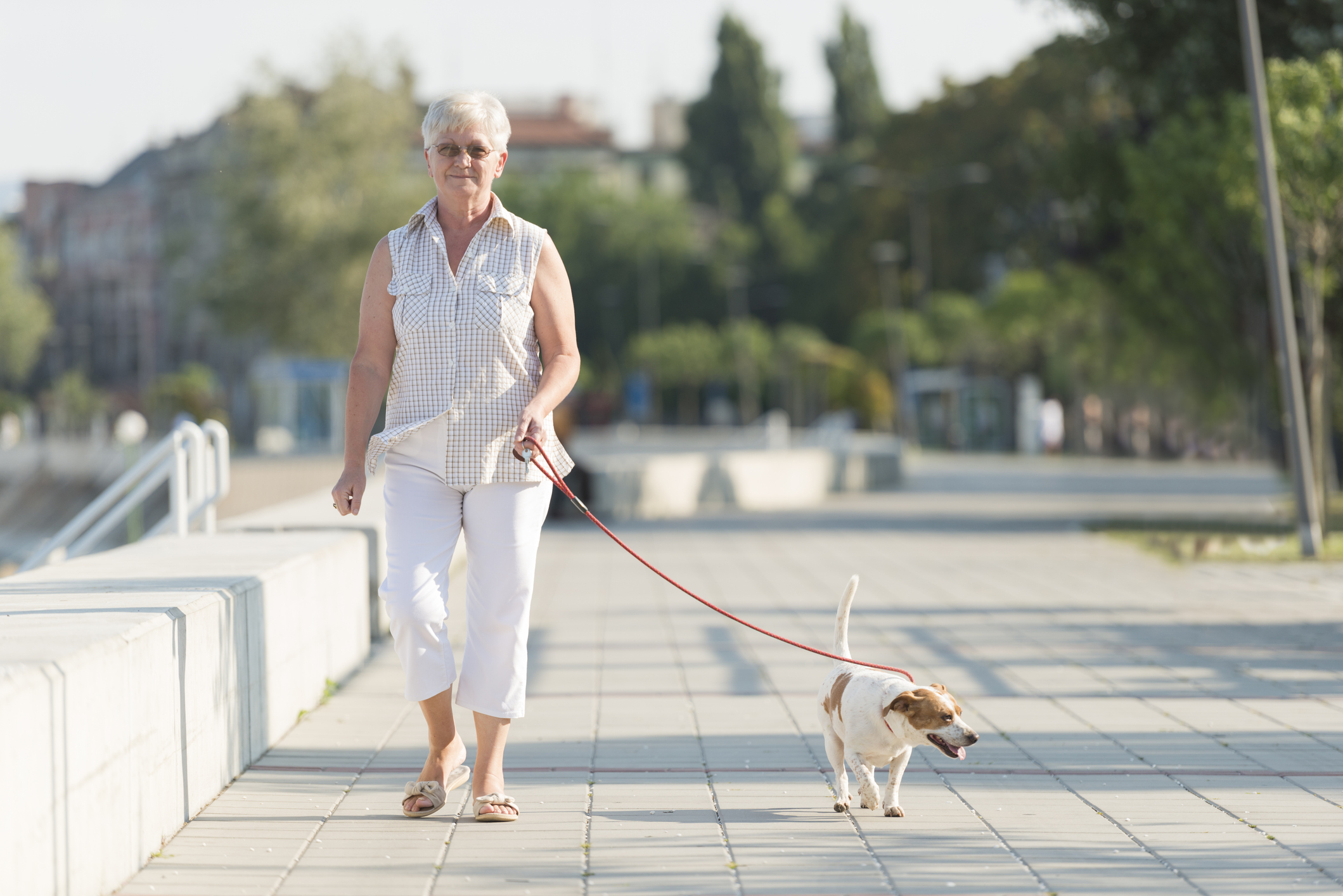“Get a dog,” they said, “You’ll exercise more and meet your neighbors”. While these statements are true for older adults, unfortunately seniors who walk their dogs to stay more active are also more likely to fracture a bone according to a recent study published in the JAMA Surgery.
Dog are wonderful, loving companions for older adults and they usually do require a daily walk which helps keep seniors active and gives them a sense of purpose. But a study by the University of Pennsylvania School of Medicine found that between 2004 and 2017, dog walking-related fractures more than doubled among adults over the age of 65. Hip and upper extremity breaks were most common and 78 percent of fractures occurred in women.
Walking a dog does have significant benefits for older adults; it helps them stay active, get outdoors during daylight hours and often provides opportunities for regular social interaction. However, falls that lead to injury and hospitalization are frequently the beginning of a loss of function and independent living for seniors. Hip fractures in particular can increase mortality rates by as much as 30 per cent for older adults over 65.
Although the study only used data from patients who visited the emergency room with a fracture, there may also be unreported injuries sustained by older adults walking dogs. Damaged to tendons or muscles can also hinder physical function and activity levels among seniors.
The study does not aim to discourage older adults from owning a dog or walking it regularly but there a number of precautions seniors should take to protect themselves from injury while taking their canine companion for their daily constitutional.
Protect Yourself From Falls Around Pets
- Keep pet gear; bowls, leashes and toys picked up to avoid tripping
- Wear sturdy grippy shoes or boots outdoors when walking
- Skip the walk on very icy days and play fetch in the yard instead
- Obedience train dogs to walk on a loose leash
- Elderly adults should avoid large dogs that can push or pull an older person
- Chasing a dog(or cat) can also lead to falls
- Keep track of where a pet is in the home while moving around – tripping over a pet is a common cause of injury.
With a little planning and thought, having a dog and walking it regularly can be a rewarding experience for older adults. Many falls are a result of inattention or carelessness and by planning ahead can be prevented. A small dog with some good training is an excellent companion that provides so many benefits for seniors, especially older adults living alone.






Add Your Voice
0 Comments
Join the Discussion